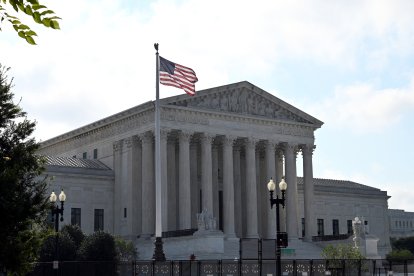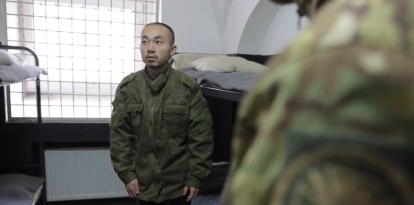Supreme Court allows Trump to resume deportations of Tren de Aragua members under the Alien Enemies Act
The high court approved the permission after a close 5-4 vote. The four justices who opposed were the three liberals and conservative Amy Coney Barrett.

Supreme Court
The U.S. Supreme Court announced Monday that it was officially allowing President Donald Trump to restart the deportation of migrants who are members of the Venezuelan terrorist group Tren de Aragua, invoking the Alien Enemies Act of 1798. After a close 5-4 vote, the high court approved the permit, granting a request for emergency relief that the Department of Justice had previously filed in the dispute over Trump's use of the law to quickly and without any hearings remove suspected members of the criminal organization. The four judges who opposed were the three liberals and conservative Amy Coney Barrett, nominated by the Republican president during his first administration.
In an unsigned decision, the highest instance of the U.S. judiciary detailed that those detainees who are currently challenging their deportations under the law invoked by Trump are held in the state of Texas, so the District of Columbia - which is where the case had originally been tried - was not the appropriate place to litigate this matter. After lifting two temporary injunctions that federal Judge James Boasberg had issued that prevented deportations under the law, the high court also noted that "as a result, the government is likely to succeed on the merits of this action."
Substantial change
Despite the approval of this relief, one major change mandated by the Supreme Court was that those detained subject to the Alien Enemies Act after the date of the high court's order must "receive notice" that they face deportation under the rule. "The notice must be afforded within a reasonable time and in such a manner as will allow them to actually seek habeas relief in the proper venue before such removal occurs," the justices detailed.
Similarly, the Supreme Court affirmed in its decision that detainees subject to deportation orders under the law invoked by the Republican president have every right to be notified and even to challenge their removal. "The only question is which court will resolve that challenge. For the reasons set forth, we hold that venue lies in the district of confinement," the high court noted. That specification contradicts arguments made over the past few days by several members of the administration, such as National Security Advisor Stephen Miller, who on several occasions has assured that the process to which those detained under the law have the right to resort is deportation.
Controversial deportations
While U.S. authorities have deported hundreds of alleged members of the terrorist group to the Central American country, relatives of several of the detainees have assured that they are innocent and have never been part of Tren de Aragua, which has raised suspicions among numerous organizations and even politicians as to whether all detentions would be supported by concrete evidence demonstrating the detainees' links to the group, or whether they are being carried out arbitrarily.
RECOMMENDATION




















